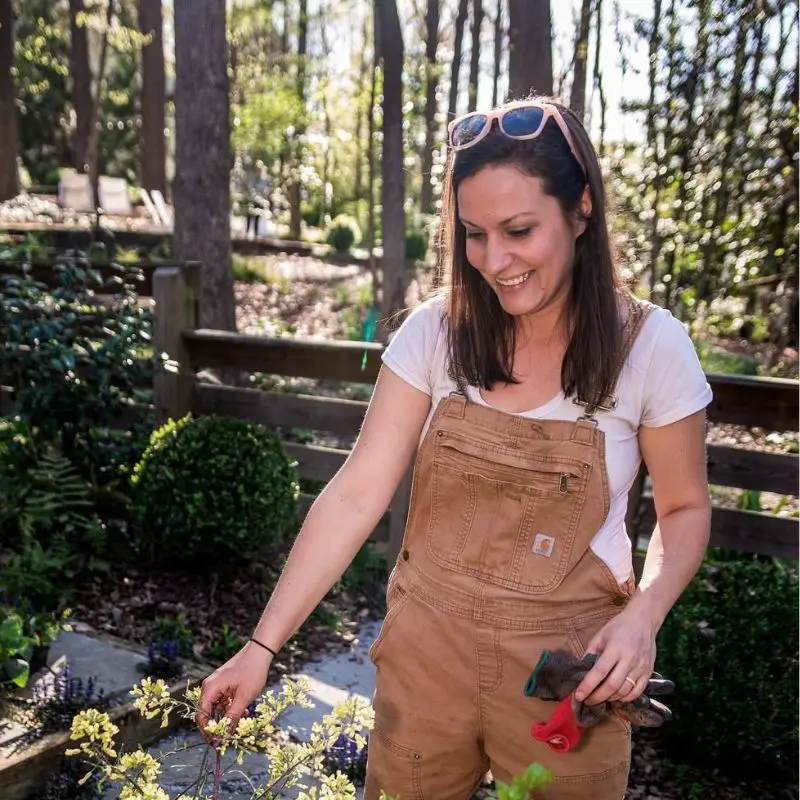If you’re spending most of your day glued to a screen or hunched over a desk, we’re here to comfort you and tell you that you’re not alone. However, since we’re also fans of brutal truth, we’re also going to give it to you straight: this is really bad for your physical and mental health.
A sedentary lifestyle paired with excessive screen time can lead to unhealthy weight gain, visual fatigue and bad sight, back and neck problems, poor concentration, and even mental health issues like anxiety and depression, among other things.
Spending time outdoors with your hands in the dirt might sound old-fashioned, but it comes with a whole range of benefits for your mental and physical well-being. It's not just about growing pretty flowers or the satisfaction of cultivating your own food (though that’s a big part of it!) – gardening has a unique ability to reconnect you with nature while offering some serious health benefits. Here’s how and why it works.

The Healing Power of Nature
It’s easy to forget that humans are wired to thrive in natural environments. Research has consistently shown that spending time in green spaces helps reduce stress and improve overall mental health (and even increases our lifespan). When you're surrounded by plants, fresh air, and the sounds of nature, your nervous system relaxes, your mood lifts, and it becomes easier to think clearly.
Gardening takes this experience to the next level because it requires active participation. While gardening, you're not just passively observing nature but engaging and caring for it.
There's something about tending to a plant, watching it grow and flourish that triggers a sense of calm and fulfillment (even if the tomatoes aren’t perfect). It gives you a break from the endless cycle of notifications, emails, and online meetings, allowing your brain to reset.
Reducing Stress and Improving Mood
One of the most well-known benefits of gardening is its impact on stress. The repetitive, hands-on nature of gardening-whether you're planting seeds, pulling weeds, or pruning shrubs-provides a kind of meditative effect. It's also an escape from the constant mental stimulation of daily life.
Studies have shown that being around plants and getting your hands dirty can reduce levels of cortisol, the hormone your body releases when you're stressed. When you garden, you're also likely to experience a boost in serotonin, the hormone that contributes to feelings of well-being and happiness. The physical activity combined with the sense of accomplishment you get from nurturing a plant from seed to harvest is an excellent antidote to anxiety and depression.

Weight Loss and Exercise
In addition to boosting your mental health, gardening can also enhance your physical health as it involves more movement than you might think. You're lifting, digging, bending, stretching, and sometimes even squatting, which can all add up to a pretty solid workout (without even realizing you’re exercising!). If you spend enough time in your garden, it can aid in weight loss and help improve your overall fitness.
Even better, you’re outdoors, soaking up the sun. That means you’re getting a good dose of vitamin D, which is crucial for your immune system and helps maintain healthy bones. Just make sure to wear sunscreen, as you don’t want a sunburn sabotaging your new hobby.
That said, if you’re already doing everything right-staying active, tending to your garden, and still not shedding as many pounds as you'd like-it might be time to take a closer look at your diet. Gardening can help, but it’s not always enough on its own. A balanced diet rich in whole foods, combined with the right supplements, can make a big difference. In some cases, medications like Metformin for weight loss may also be worth considering if recommended by your doctor. After all, staying healthy is a multifaceted effort, and sometimes you need to mix things up to get the results you're after.
Boosting Attention Span
Ever notice how difficult it is to focus after hours of staring at a computer? That’s your brain crying out for a break. Engaging in gardening can improve your concentration and attention span because it provides a form of mental rest while still requiring focus.
There’s a reason why some therapists prescribe nature therapy for patients with attention disorders. Being in a garden helps you become more mindful, making it easier to concentrate on tasks when you return to work. Plus, learning new gardening skills keeps your brain active and challenged-there's always something new to figure out, whether it’s soil conditions or which plants grow best in your region.

Learning New Skills and Finding Purpose
Gardening isn’t just good for your body and mind-it’s also an excellent way to pick up new skills. You learn to solve problems, whether it’s figuring out why your cucumbers aren’t growing or how to deal with pests naturally. The constant process of trial and error teaches resilience, patience, and even some science (plants don’t always behave how you expect, and you learn to adapt).
There’s also something deeply satisfying about nurturing life. The plants depend on you, and watching them grow gives you a sense of responsibility and accomplishment. That feeling can be a powerful motivator and a great way to develop a greater sense of purpose, which is essential for long-term happiness.










